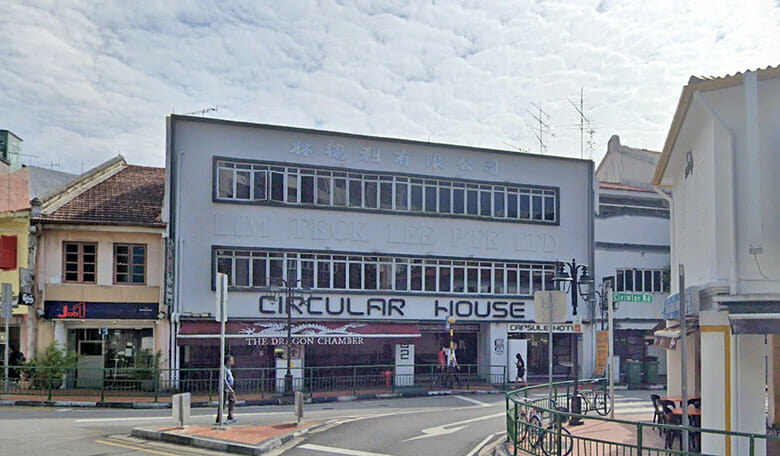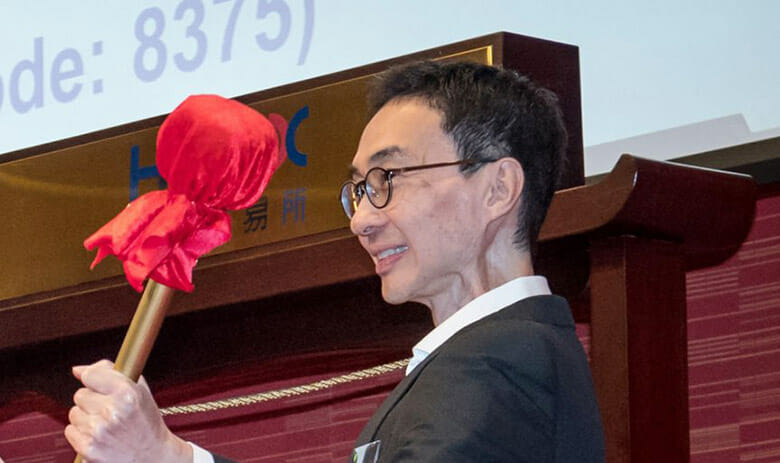2023/06/26 BY BEATRICE LAFORGA LEAVE A COMMENT

The price fetched for the portfolio was well-within market rates
A Chinese investor has reportedly purchased a row of six shophouses in downtown Singapore for S$80 million ($59 million) as wealthy overseas nationals continue to play a growing role in trades of small-scale commercial assets in the Southeast Asia financial haven.
Lim Teck Lee Pte Ltd, a century-old family business controlled by Lim Kaling, a co-founder and director of gaming firm Razer, is said to have recently sold a row of conserved shophouses at 2 to 7 Circular Road in Boat Quay, based on a story in the Business Times.
The media account identified the buyer as a local private entity owned by Chinese national Su Fuxiang, with the deal marking the latest case of a wealthy mainland individual acquiring Singapore commercial properties, with the trend expected to intensify after the government hiked taxes on home purchases by overseas nationals in late April.
With just over 6,500 of the traditional properties designated as conserved across the city-state, Singapore’s shophouse market remains an attractive asset class for investors given the limited supply, and the exemption of commercial assets from stamp duty measures, said Mary Sai, executive director of capital markets at Knight Frank Singapore.
Premium For Prime Location
With the portfolio’s gross floor area estimated to range from 16,000 square feet to 18,000 square feet, Su is paying between S$4,440 and S$5,000 per square foot for the properties at the intersection of Circular Road and South Bridge Road.

Lim Kaling at the Hong Kong IPO of Razer in 2017 (Getty Images)
The price per square foot is well-within current market rates for the area backing onto Boat Quay’s bustling dining strip, according to Sai, who was not involved in the deal but agreed to provide market commentary.
Located near the Singapore River in District 1, businesses occupying the shophouses include Chinese restaurant the Dragon Chamber and the Circular House Capsule Hotel. The buildings are three storeys high with their ground levels dedicated to restaurant use.
“Districts 1 and 2 are the more popular locations where shophouse buyers would look at because these have conserved shophouses that are very well sought-after,” she said. “Even without the waterfront, it’s in a very conspicuous location. (Investors) like to buy shophouses for potential capital appreciation, (and the districts) are within the central business district which are very well connected in terms of public transport.”
Founded in 1918, Lim Teck Lee had been a trader and wholesaler of industrial raw materials, chemicals, dyes, furniture and other products, but has now discontinued sales, according to a notice on its website.
Mainlanders Move In
The name of the buyer of the Boat Quay properties matches the name of a member who joined the Sentosa Golf Club in late 2021, according to a publication by the private organisation where memberships were selling for S$840,000 ($637,000) earlier this year.
Also, in May of this year local arts organisation Orchestra of the Music Makers thanked a Su Fuxiang for his support in acting as its Presenting Sponsor for its 100th concert.
The Business Times account said Su has been investing in Singapore’s property market over the past two years and also backed the establishment of car rental firm First Limousine Service a year ago.
In April, a Chinese investor purchased the Liberty House office block in Singapore’s Chinatown area for S$92.2 million and buyers from mainland China played a significant role in a series of strata office sales in Suntec City last year including the October purchase of a floor in the commercial complex for a record S$41.14 million.
Conserved shophouses are heritage structures that are narrow, terraced houses typically two- to three-storeys high and represent a dominant property style in Southeast Asia between the 1840s and the 1960s. The majority of the conserved buildings are located in prime locations including the historic districts of Boat Quay, Chinatown and Little India.
Stable Shophouse Sales
With many investors looking to shophouses for wealth preservation, Sai expects trades of the assets this year to stay steady with the 187 properties which changed hands last year for S$1.6 billion. That was down 16 percent from the record S$1.9 billion of shophouse sales in 2021.
“We are seeing shophouse owners holding tightly onto their properties because there is still potential for upside, they might not be quick to put them up for sale as some of them may be waiting on the sidelines to see how much more are people willing to offer,” she said.
However, buyers are still proving willing to pay a premium for properties in prime locations.
A few blocks away from the Lim Teck Lee properties is a six-storey shophouse at 52 Boat Quay that sold to an undisclosed investor for S$37 million in a deal announced in March.
In January, a union affiliated with Singapore’s National Trades Union Congress (NTUC) bought a block of six shophouses at 322-332 Serangoon Road near Farrer Park MRT station for S$62.5 million.



